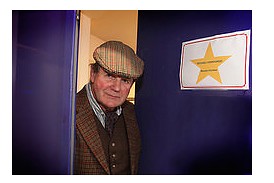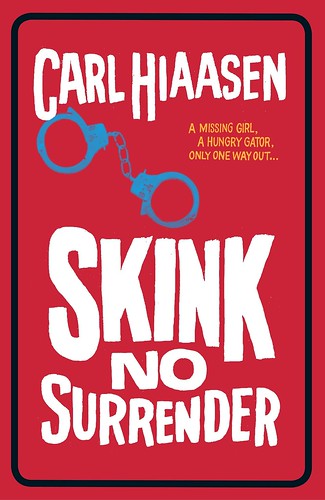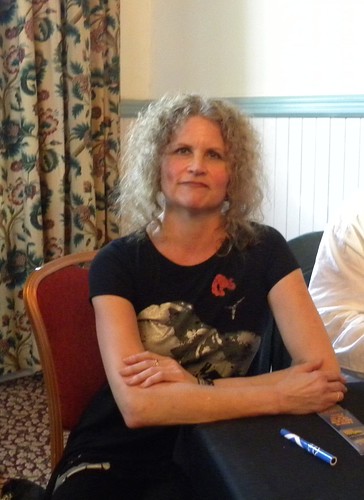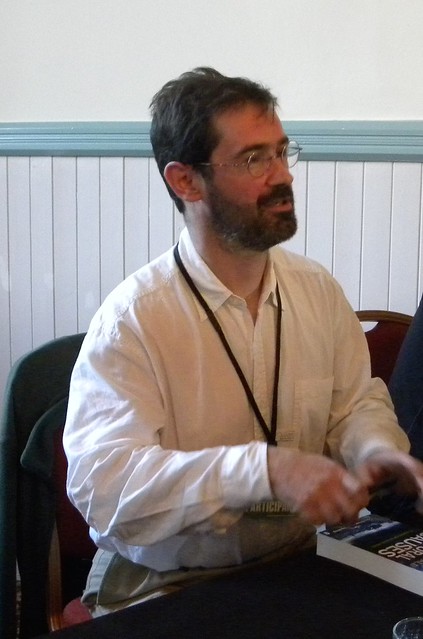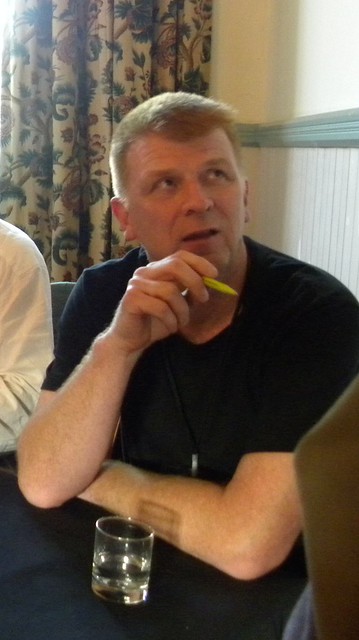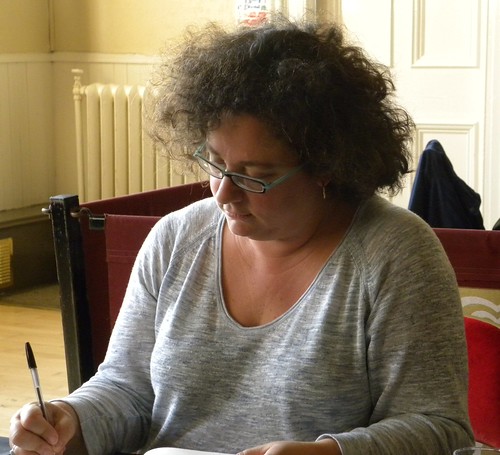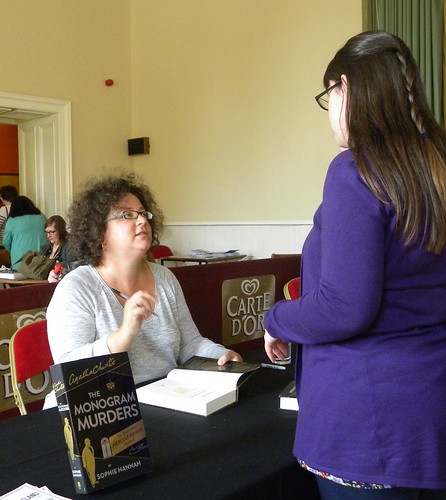The day had its ups and downs. Twice, in fact. I’d carefully chosen my morning event at Bloody Scotland to be down at the Albert Halls, so you can work out what had to happen. Had to collect my ticket at the Stirling Highland Hotel first, way up where I was on Thursday. The Resident IT Consultant drove me there, and while I got the tickets and hobbled down the hill again, he drove home, parked the car and walked back to the Albert Halls. (Because, yes, I had given him permission to join me.)
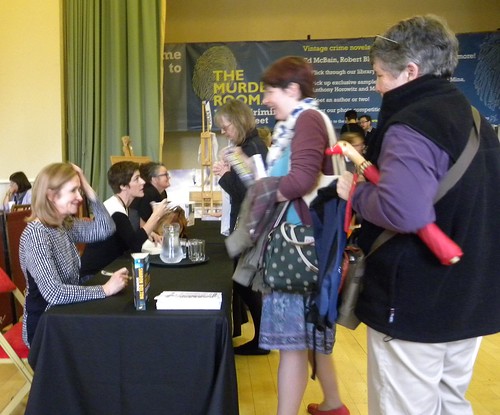
Apart from venue, I had chosen events with people I don’t know. Leaving your comfort zone and all that. The day began with Domestic Noir as written by Sharon Bolton, Helen Fitzgerald and Julia Crouch. They each read a short piece, and that was pretty chilling stuff. I’m not sure I’d have the guts to read the whole book, by any of them.
All three believe in starting with a punchy first sentence, because you can’t afford not to. The reader should be able to tell it’s not chick lit, but hard-hitting crime. It’s the editor’s job to tell them when there is too much housework in a book. Well-ordered tins of food is very scary, and so is an unreliable narrator. Sharon even has an unreliable main character.
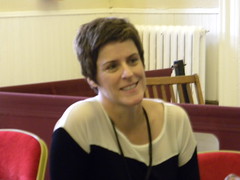
None of them reckon they need to write about feminism. It’s obvious from their books. Helen spoke of Australian radio announcements when there are bushfires. If you can see flames, don’t leave your house. It’s too late. Sharon talked about snakes in Midsomer country, and Julia has a past travelling in Greece that involved drunken, unseemly behaviour. (She looked so nice, too.)
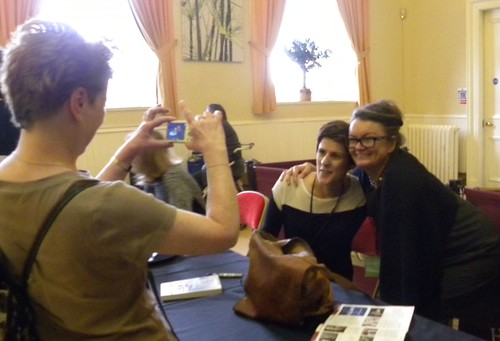
They find their children useful as sources of information and style, and while Julia had borrowed a friend’s Cath Kidston type house for a book, Sharon went out of her way to find a ‘skanky’ riverside setting.
Helen works part time, having gone crazy, alone in her attic. Sharon said she’s an unsociable creature who works best alone, with the dog to tell her it’s time for lunch. Although Twitter is good to check when things aren’t going so well.

Both Sharon and Julia know how their books should end, but will often change as they go along. Helen knows where she is going, and even has a last line that she aims for. Humour is necessary and contact with readers is good. They all listen to their editors, and writing can be ‘sheer hell to go through, but worth it in the end.’
Afterwards we repaired to the bookshop for signings, and I enjoyed a mug of tea and cake, and a good read. As I left, I found Peter Robinson, whose event came next, sitting incognito-ish in the foyer. I think that meant he wasn’t really there, but his fans recognised him and came up to chat.
I climbed up the hill, having sent the Resident IT Consultant home, wondering why the Back Walk gave me vertigo going up, when down had been OK. My afternoon event was about Glasgow Gangsters with Andrew Davies and Bryan McLaughlin, chaired by Douglas Skelton. Andrew is a crime historian, specialising in street gangs, and Bryan is a retired Glasgow detective, who has written a book about his work.
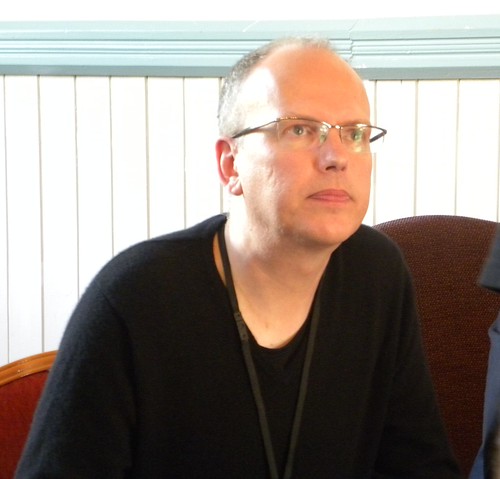
Street gangs happen because of poverty, over-crowding and unemployment. Andrew compared the smaller number of gang members in places like Coronation Street, small streets of terraced housing, with the Glasgow tenements, where you could literally be on the wrong side of the street, on someone else’s turf, and be killed for it.
Bryan, who hails from Easterhouse, reckoned the 1960s weren’t as dangerous as the 1920s or 30s, and that it was mainly territorial fights rather than other crimes. Andrew has scoured newspaper libraries for everything on crime and gangs in Glasgow, including moving there for six months to learn more. Chicago crime featured heavily in the papers, and both authors reckoned newspapers could have been partly to blame for the reputation of gangs and individual criminals.
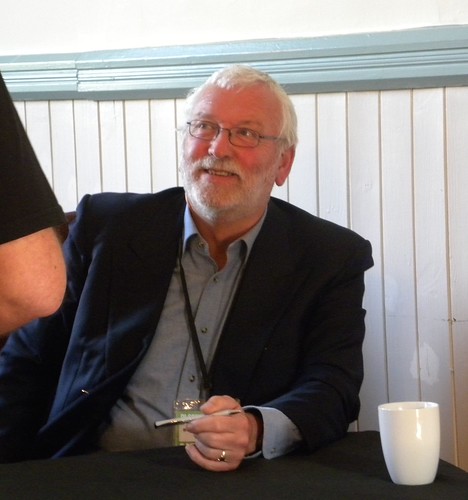
According to Bryan, Manchester’s Moss Side is worse than Glasgow is now. There is less violence, now that it is mainly drugs, because you’d be stupid to attack a potential customer. Questions from the audience covered things like human trafficking and what gangsters did in the war.
Then there was more signing, in yet another bookshop, with people doing literary chairs to fit in behind the available tables. I did that thing I rarely do, which is buy a book. (For tomorrow. James Oswald. Thought I’d better be prepared. As I exited the bookshop I found myself face to face with James. As you do.)
Came across Bloody Scotland’s Lin Anderson, who had been collared by someone outside the Ladies (which might not be the best of places to waylay people). After which it was time for me to make my second descent of the day. I won’t be able to keep this up…

